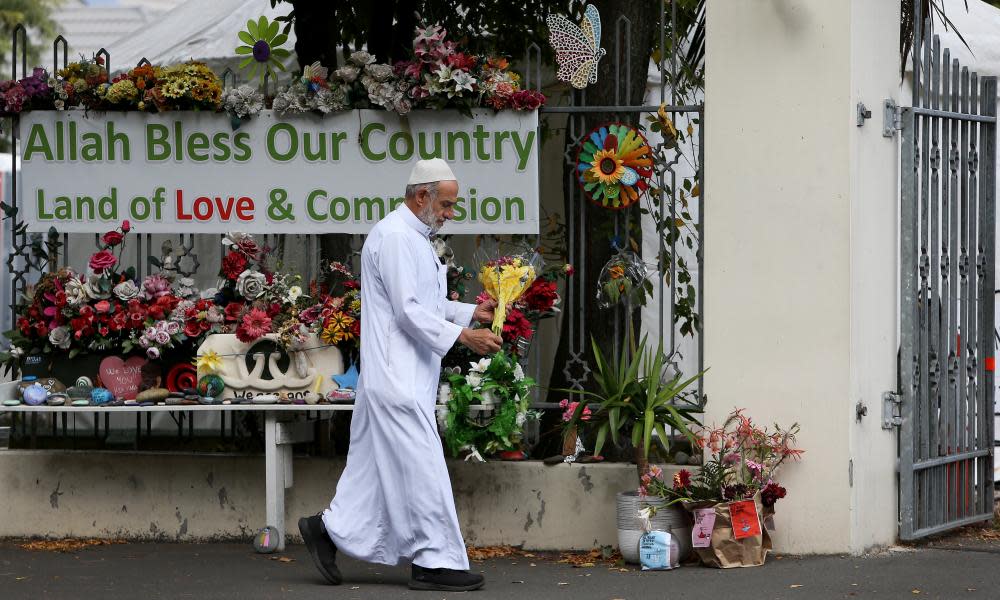Christchurch mosque attacker to represent himself at sentencing

The Australian man who pleaded guilty to killing 51 Muslims in a terrorist attack in Christchurch in March 2019 has chosen to represent himself at his sentencing next month.
Brenton Tarrant pleaded guilty in March to 51 counts of murder, 40 of attempted murder and a terrorism charge after dozens of worshippers were gunned down at two mosques in New Zealand last year.
He appeared to have posted a white supremacist manifesto online before the attack, which was live-streamed on Facebook.
Related: Christchurch gunman pleads guilty to New Zealand mosque attacks that killed 51
At a briefing hearing in the high court at Christchurch on Monday morning, Tarrant’s lawyers confirmed they were withdrawing their state-funded representation of him.
Tarrant appeared by audio-visual link from his maximum-security prison in Auckland.
“Because Mr Tarrant wishes to represent himself at sentencing, I will be appointing a lawyer to fulfil the role of standby counsel,” said justice Cameron Mander, in a statement.
“The role of standby counsel is to assist the defendant if and to the extent the defendant wishes to accept that counsel’s assistance.”
Aya Al-Umari, whose brother Hussein Al-Umari was killed at al Noor mosque, said the gunman’s decision to represent himself was a bid for attention. “It is a tactic to want to stay relevant in the news by any means he can,” she told the Guardian.
Tarrant will be sentenced on 24 August, and faces the possibility of life in prison without chance for parole – a term no one in New Zealand has received before.
The sentencing is expected to be lengthy – scheduled to take three days – as dozens of his victims and the bereaved families are likely to give statements.
The gunman’s decision to represent himself created “an incredibly difficult task for the judge” to ensure the proceedings were tightly controlled, said Chris Gallavin, a law professor at Massey University in Palmerston North.
But he added that New Zealand’s British-derived legal tradition was “more austere” than the often fluid court proceedings seen in countries such as the United States, and there would be limited opportunities for Tarrant to speak – especially if he looked to air ideological views.
The judge “can’t deny him the opportunity to speak, but he’ll pounce on him if it looks like he’s using it as an opportunity to grandstand,” Gallavin said.
The judge had some control over how the hearing would run, and would likely allow the victims and bereaved families to read their statements before Tarrant was allowed to say anything, said Gallavin.
He said a New Zealand court would not allow an equivalent of the hour-long, highly political statement read by Anders Behring Breivik at his 2012 trial after he killed 77 people in an attack in Norway – and would pause the hearing if it “got out of control”.

 Yahoo News
Yahoo News 
